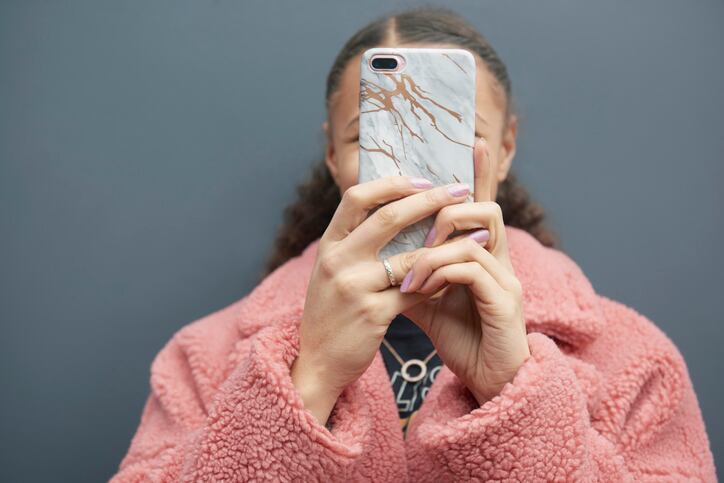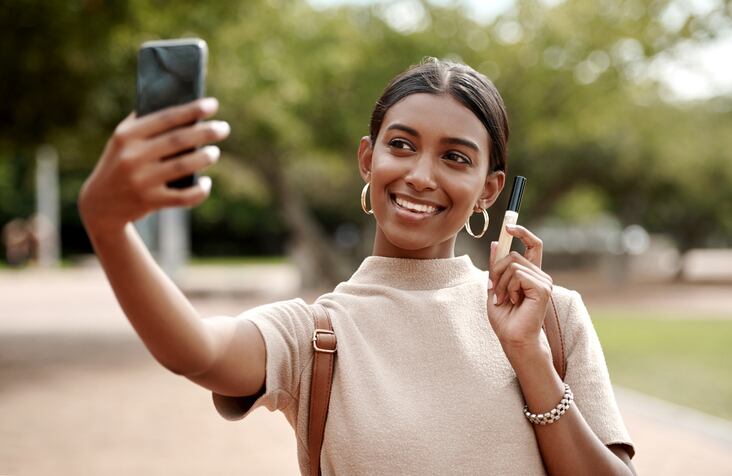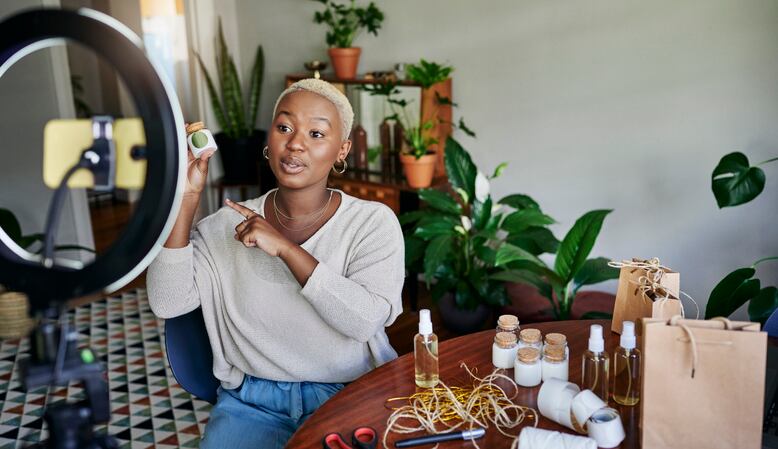Consumer-facing skin care comparison site Skincare Hero recently conducted research to find the ‘hottest’ skin care brands on TikTok, looking at the number of hashtags, followers and videos associated with some of the biggest global beauty brands*. The aim? To understand how popular and widely known certain beauty brands were on the platform.
TikTok beauty hashtags, followers and video content
Findings from the research conducted in July 2021 showed The Ordinary was the most popular on the platform, with 949m hashtags and 288,000 followers; CeraVe came in second with 878.5m hashtags and 252,600 followers.
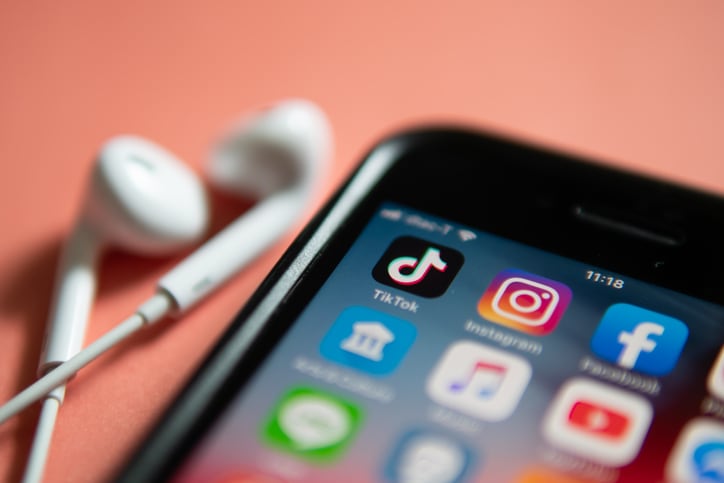
A closer look at most popular brands by hashtag showed that behind The Ordinary (1) and CeraVe (2) was L’Oréal (3) with 518.4m hashtags; Glossier (4) with 400.8m hashtags; Dove (5) with 392.4m hashtags; and Olay (6) with 288.1m hashtags. Neutrogena, Kiehl’s, Cetaphil and Estée Lauder all ranked behind sitting in the top ten by hashtags on TikTok.
A spotlight on follower count ranked L’Oréal in third spot again, with 232,300 followers, behind The Ordinary (1) and CeraVe (2). This was followed by Glossier (4) with 114,800 followers; Versed (5) with 57,300 followers; and Kiehl’s (6) with 40,000 followers.
The beauty brands with the most videos on TikTok, however, showed a very different ranking order, with Dermalogica taking top spot with 284 published videos, followed by L’Occitane with 175 and Glossier with 168. CeraVe had published just one video on its account by contrast, though alongside The Ordinary and L’Oréal Paris the three brands had collectively totted up 2.5bn video views since TikTok launched.
“Skin care is the new self-care. And TikTok is now the newest space on the internet for the skincare-obsessed to create and consume content,” said Jake Agnew, founder of Skincare Hero.
TikTok beauty popularity and learnings for future success
Speaking to CosmeticsDesign-Europe about why Skincare Hero had conducted the research, Agnew said: “Because we wanted to learn how popular the brands we typically recommend are, because consumers are more likely to purchase a product they have already heard of. For Skincare Hero, we try to focus on reviewing and recommending brands our audience is already familiar with.
“We also wanted to learn more about how brands are perceived among younger audiences, such as Gen Z. With TikTok being the go-to platform for this generation, we knew it would be the best place to get a sense of popularity,” he said.
However, Skincare Hero had decided to publish findings with industry in mind, rather than consumers, he said.
“We ultimately decided to publish our findings because we think it’s helpful for other brands to learn more about what’s successful on the platform, to help them take advantage of this new opportunity.”
*Beauty brands analysed in the research: Acure, Alastin, Alba Botanica, Alpha Hydrox, Alpyn Beauty, Augustinus Bader, Aveeno, Avene, Bioderma, Biologique Recherche, Biossance, Burts Bees, Caudalie, Caudalíe, CeraVe, Cetaphil, Clarins, Clinique, Cocokind, Cosrx, Dermalogica, Dove, Dr Barbara Sturm, Dr Dennis Gross, Dr Jart, Drunk Elephant, Eltamd, Estee Lauder, Glossier, Golde, Herbivore, Hero Cosmetics, Kate Somerville, Kiehls, L'Occitane, La Mer, La Prairie, La Roche-Posay, Lancôme, L’Oréal, Mad Hippie, Mario Badescu, Murad, Neostrata, Neutrogena, No7, Olay, Olehenriksen, Paulas Choice, Peter Thomas Roth, Pixi, Renee Rouleau, Roc, Sebamed, Shani Darden, Shiseido, Simple Skincare, Sisley Paris, SK-ii, Skinceuticals, Skinmedica, Sunday Riley, Supergoop, Tata Harper, Tatcha, The Ordinary, True Botanicals, U Beauty, Vanicream, Versed, Vichy and Weleda
The TikTok #beauty surge – engagement, strategic partnerships and creators
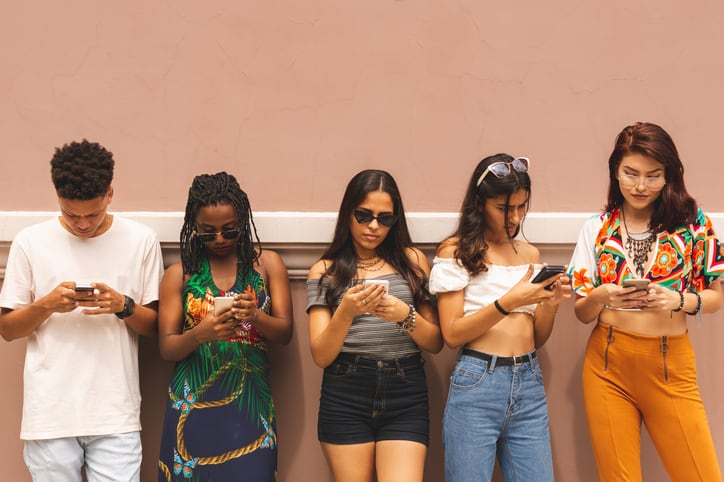
Digital marketing experts at The Pull Agency recently held an online B2B workshop on TikTok and beauty that highlighted the unfathomable rise of the category on the platform and outlined why it was crucial beauty brands started to participate.
“Engagement rates here are like no other social media platform,” said Virginia Girtz, head of digital marketing at The Pull Agency. And this, she said, was because of TikTok’s smart algorithm ensuring videos were highly tailored to user preferences.
CosmeticsDesign-Europe recently caught up with Antonia Baildam, brand partnerships manager for beauty at TikTok, on our Beauty 4.0 Podcast series [you can listen here] about how and why beauty brands would continue to jump aboard as this rush continued.
Baildam said as beauty engagement soared, and content – user and brand generated – continued to bubble, TikTok was looking into “strategic partnerships” that would make the discovery-to-purchase journey simpler for users; taking them beyond entertainment and into shopping mode. TikTok recently unveiled a social ecommerce pilot programme in the UK, for example, making L’Oréal mega brands Garnier and NYX Professional Make-Up available to buy directly via the TikTok app.
Brit Starr, executive VP at US-based marketing analytics firm Tribe Dynamics, recently said TikTok was a “huge” space for beauty brands to watch.
“People are incredibly focused on TikTok now, and I think for good reason. It’s shown its staying power. It’s grown incredibly quickly, and it has a really distinct set of creators,” Starr said.

